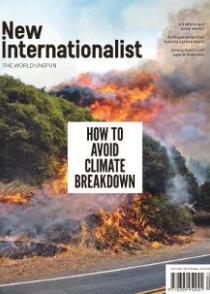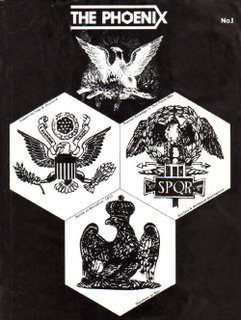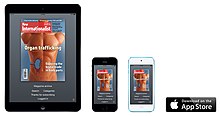
The Sydney Swans are a professional Australian rules football club, based in Sydney, New South Wales. The club competes in the Australian Football League (AFL), the sport's premier league.
The Wall Street Journal is an American business-focused, English-language international daily newspaper based in New York City, with international editions also available in Chinese and Japanese. The Journal, along with its Asian editions, is published six days a week by Dow Jones & Company, a division of News Corp. The newspaper is published in the broadsheet format and online. The Journal has been printed continuously since its inception on July 8, 1889, by Charles Dow, Edward Jones, and Charles Bergstresser.

USA Today is an American daily middle-market newspaper and news broadcasting company. Founded by Al Neuharth on September 15, 1982, USA Today operates from Gannett's corporate headquarters in Tysons, Virginia. Its newspaper is printed at 37 sites across the United States and at five additional sites internationally. Its dynamic design influenced the style of local, regional, and national newspapers worldwide through its use of concise reports, colorized images, informational graphics, and inclusion of popular culture stories, among other distinct features.
Vogue is an American monthly fashion and lifestyle magazine that covers many topics, including haute couture fashion, beauty, culture, living, and runway. Based at One World Trade Center in the Financial District of Lower Manhattan, Vogue began as a weekly newspaper in 1892 before becoming a monthly magazine years later. Since starting up in 1892, Vogue has featured numerous actors, musicians, models, athletes, and other prominent celebrities. The largest issue to be published by Vogue magazine was published in September 2012, containing 900 pages.

The Australian, with its Saturday edition, The Weekend Australian, is a broadsheet newspaper published by News Corp Australia since 14 July 1964. As the only Australian daily newspaper distributed nationally, its readership as of September 2019 of both print and online editions was 2,394,000. Its editorial line has been self-described over time as centre-right.

New Internationalist (NI) is an international publisher and left-wing magazine based in Oxford, United Kingdom, owned and run by a worker-run co-operative with a non-hierarchical structure. Known for its strict editorial and environmental policies, and its bi-monthly independent magazine, it describes itself as existing to "cover stories the mainstream media sidestep and provide alternative perspectives on today's global critical issues." It covers social and environmental issues through its magazine, books and digital platforms.
PC World is a global computer magazine published monthly by IDG. Since 2013, it has been an online only publication.

The Australian Financial Review is an Australian business-focused, compact daily newspaper covering the current business and economic affairs of Australia and the world. The newspaper is based in Sydney, New South Wales, Australia; owned by Nine Entertainment and has been published continuously since its founding in 1951. The AFR, along with the rest of Fairfax Media, was sold to Nine Entertainment for more than A$2.3 billion. The AFR is published in tabloid format six times a week, whilst providing 24/7 online coverage through its website. In November 2019, the AFR reached 2.647 million Australians through both print and digital mediums (Mumbrella).

The Royal Australasian Ornithologists Union (RAOU), now part of BirdLife Australia, was Australia's largest non-government, non-profit, bird conservation organisation. It was founded in 1901 to promote the study and conservation of the native bird species of Australia and adjacent regions, making it Australia's oldest national birding association. In 1996, the organisation adopted the trading name of Birds Australia for most public purposes, while retaining its original name for legal purposes and as the publisher of its journal, the Emu. In 2012, the RAOU merged with Bird Observation & Conservation Australia to form BirdLife Australia.

The World Fair Trade Organization (WFTO), is a global association of 401 organizations who are committed to improving the livelihoods of economically marginalised producers. WFTO has members in 76 countries. Members are primarily fair trade enterprises, whose business model is verified by independent audit and peer review. Verification is at enterprise level, which covers all aspects of the business and supply chain. WFTO verification should not be confused with commodity certification systems, such as Fairtrade certification, where only a component of the product is covered. The WFTO product label can only be used by verified fair trade enterprises, which consist of producer cooperatives and associations, export marketing companies, importers, retailers, national and regional fair trade networks and Fair Trade Support Organizations. WFTO is democratically run on a one member one vote basis. WFTO was created in 1989 and was formerly the International Federation of Alternative Traders ("IFAT").

The Australasian Post, commonly called the Aussie Post, was Australia's longest-running weekly picture magazine.
The fair trade movement has undergone several important changes like the operation for ten thousand villages to open their businesses since early days following World War II. Fair trade, first seen as a form of charity advocated by religious organizations, has radically changed in structure, philosophy and approach. The past fifty years have witnessed massive changes in the diversity of fair trade proponents, the products traded and their distribution networks.

Adventist Record is the fortnightly news magazine of the Seventh-day Adventist Church in the South Pacific region of the church. Its office is located in Sydney, New South Wales, Australia, and connected with Adventist Media. The magazine is printed by Signs Publishing Company, located outside of Melbourne, in Victoria.
Daily Cargo News (DCN) is a monthly Australian shipping, trade, transport and logistics focused magazine, published by Paragon Media. First published in 1891 as Daily Commercial News, Daily Cargo News is Australia's longest running national newspaper.

Phoenix was a magazine primarily focussed on board wargames. It was published in the UK in the 1970s and 1980s by Simpubs Ltd., the British subsidiary of American game company Simulations Publications, Inc. (SPI).
Queensland Pride is a monthly gay and lesbian magazine based in Brisbane, Australia.

Global Sources Magazines are a series of trade magazines designed for businesses importing from China and Asia. There are 19 specialized industry-specific titles published by the business-to-business media company Global Sources. All except two titles are published monthly.

Limelight, formerly ABC Radio 24 Hours, or simply 24 Hours, is an Australian digital and print magazine focusing on music, arts and culture. It is based in Sydney, New South Wales. Originally published by the Australian Broadcasting Corporation (ABC), after several changes of ownership it is as of March 2022 owned by Limelight Arts Media Pty Ltd.
James Allen, nicknamed "Dismal Jemmy", was an English-born writer, journalist and newspaper owner in Australia and New Zealand.
The International Marxist Group (IMG) was a Trotskyist group in Britain between 1968 and 1982. It was the British Section of the Fourth International. It had around 1,000 members and supporters in the late 1970s. In 1980, it had 682 members; by 1982, when it changed its name to the Socialist League, membership had fallen to 534.












